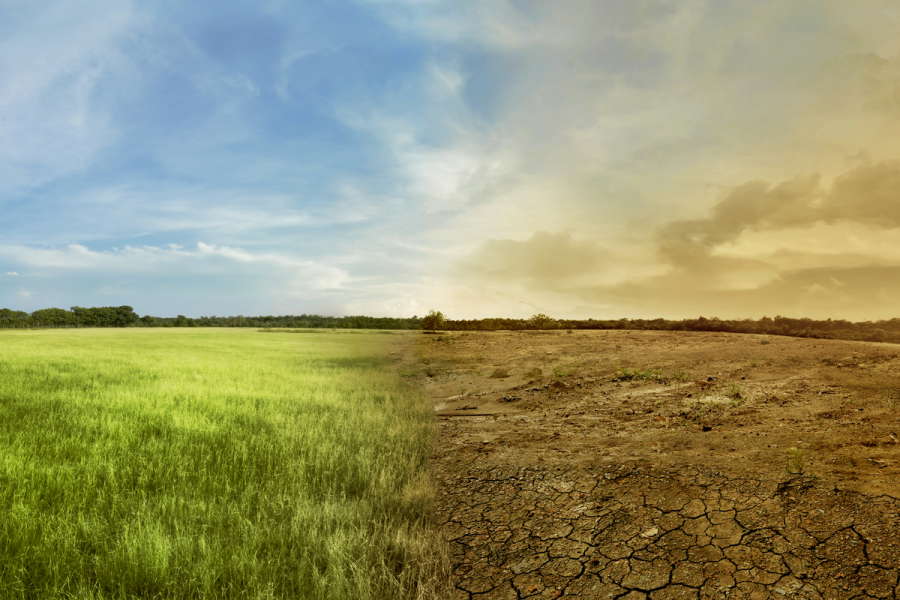Thu, Aug 14, 2025
Columns
A watershed moment in climate justice
Failure of a state in checking emissions may be considered an internationally wrongful act.
bookmark
Ananda Mohan Bhattarai
Published at : August 9, 2025
Updated at : August 10, 2025 07:43
On July 23, the International Court of Justice (ICJ) handed down an advisory opinion (AO) on the obligation of states regarding climate change. The decision is considered a big victory for humanity, strengthening belief in the international environmental rule of law. Initially led by Vanuatu and later co-sponsored by 132 states, the issue was discussed at the UN General Assembly, following which it unanimously sent the reference (resolution 77/276, March 29, 2023) to the ICJ.
In the referral, the UNGA asked two questions: a) What are the obligations of the states under international law to ensure the protection of the climate system and other parts of the environment from anthropogenic emissions of greenhouse gases, for present and future generations? And, (b) What are the legal consequences under these obligations for states where they, by their acts and omissions, have caused significant harm to the climate system and other parts of the environment?
The advisory opinion is historic in many respects. First, the ICJ squarely addressed the issue of climate change for the first time. Second, the proceedings at the ICJ garnered colossal global interest and representation of states and international organisations. Even non-parties to the Paris Agreement agreed on the reference and argued before the court. Third, the court was unanimous in comprehending the gravity of the threat posed by climate change. Fourth, while delivering AO unanimously, the court took a holistic approach and analysed the whole corpus of international law, including customary international law. Finally, the court answered the questions in a general manner. But it opined in clear terms that causing significant harm to the climate system and other parts of the environment would be a breach of international law, and all the states—members and non-members alike to the Paris Agreement—would have to act or bear the consequences. Thus, the ICJ, to a large extent, met the expectations of the global community and acted as the ‘World Court’ in a real sense of the term.
For Nepal, it is historic in the sense that the ever slumbering bureaucracy, flogged up by young lawyers and law students, and with the good offices of a few well-meaning people, finally awoke and submitted the statement after Nepal got an extension on an exceptional basis. As a result, she, for the first time, got the opportunity to stand before the ICJ and tell her story.
The court considers the obligation of all states under the entire corpus of international law without limiting to any particular area or source of international law. Along with it, the principle of sustainable development, common but differentiated responsibility and respective capacity (CBDRRC), equity, intergenerational equity, and precautionary approach or principle formed the guiding principles for the interpretation.
The ICJ inquiry considered a range of human activities, including the emission of greenhouse gases (GHGs), leading to climate change. It held that the consequences of climate change are severe and far-reaching. They underscore the urgent and existential threat posed by climate change.
While handing out the advisory opinion, the court used three principles of customary international law: the duty to prevent significant environmental harm, the duty to cooperate, and due diligence. The court was of the view that when several customary and treaty-based norms relate to a single issue, they should, to the extent possible, be interpreted to give rise to a single set of compatible obligations.
According to the court, international law requires the state to prevent significant harm to the climate system. It is the most paramount duty of the state recognised by treaties and customary international law. The duty to prevent harm to the environment is a duty to act in due diligence, said the court. The standard of due diligence requires a state to “use all the means at its disposal to avoid activities which take place in its territory, or any area under its jurisdiction, causing significant damage to the environment of another state”. Owing to the crisis created by climate change, the due diligence standard for preventing significant harm is stringent, demanding high vigilance.
The court said the duty to cooperate lies at the core of the UN charter and is the central obligation under the climate change treaties and other environmental instruments. This duty, which formed a part of customary international law, could serve as a guiding principle for interpreting other rules. According to the court, trust and confidence are inherent in international cooperation. Cooperation between states is governed by the principle of good faith, be it under a treaty or under customary law.
The Court recognised that the duty to co-operate leaves states some discretion in determining the means for regulating their GHG emissions. However, this discretion cannot serve as an excuse for states to refrain from cooperating with the required level of due diligence. The duty to cooperate is more than just the transfer of finance or technology. The states need to continuously develop, maintain and implement a collective climate policy based on an equitable distribution of burdens and following the CBDRCC.
While handing down the advisory opinion, the court analysed the Paris Agreement in detail. Of special importance is its temperature goal stated in Article 2. According to the court meeting, that goal is the obligation of the state, which could be done through nationally determined contributions (NDC), mitigation, adaptation and technology transfer. The agreement imposes obligations to prepare, communicate and maintain NDCs to achieve its objective. The obligation to prepare, communicate and maintain successive NDC is a procedural and result-oriented obligation. NDC contents are discretionary, but they should be progressive and reflect the highest possible ambition. That way, the agreement does not leave progressive NDC to the total discretion of the parties, the court said.
Turning to human rights law, the court noted that the environment is the foundation for human life, from which the health and well-being of present and future generations continue. It observed that the perfection of the environment is a precondition for the enjoyment of human rights. It is of the view that the adverse effects of climate change may affect a number of rights, such as the right to health, an adequate standard of living, the right to food, water, and housing, the right to privacy and the rights of women, children and indigenous people. Given the interdependence between human rights and protection of the environment, the fulfilment of human rights would be possible only by securing the right to a clean, healthy and sustainable environment.
Regarding the consequence of failure to abide by the obligation to protect the climate system, the notion of lex specialis (special law), norms relating to attribution and causation were raised by different states. Here, the ICJ observed, to treat climate change treaties as lex specialis, there must be some actual inconsistency—a discernible intention to exclude the other laws. The text, context, object and purpose of the climate change treaties do not support the proposition that the parties intended to exclude the general rule on state responsibility. In particular, the court found no evidence in Article 8 or 15 or the procedural mechanism of any discernible intention on the part of the parties to the Paris Agreement to derogate from the customary international law rules on state responsibilities for breaches of those obligations.
Regarding attribution, the court observed that it is to be based on international law, which clearly states that any conduct of any organisation of the state should be attributed as the conduct of that state. Therefore, the failure of the state in checking emissions, including the fossil fuel production and consumption, the granting of exploration of fossil fuel licenses, or fossil fuel subsidies, may be considered as an internationally wrongful act attributed to that state under its obligation of due diligence.
Regarding causation, even though GHG emissions cumulatively affect the climate system, foreseeability and possibility, based on best scientific evidence, could be applied to assess sufficient causal links to assess the breach.
As to the consequences of the act or omission causing significant harm to the climate system and other parts of the environment, the court said failure is an internationally wrongful act—a violation of international law. Such breaches bear consequences, calling for reparation. The consequences of breach include cessation, assurance or non-repetition, full reparation to the injured state in the form of restitution, compensation and satisfaction, said the court.
Put briefly, the ICJ’s advisory opinion (AO) bears wide-ranging consequences. The AO is a moral and legal breakthrough for victimised countries and people in the developing world. The law interpreted by the ICJ is universal. It applies to all. It offers the present and future generations moral courage to take the discourse further. To say the least, it promotes a new understanding of international law generally and climate change law in particular. In addition, it keeps the potency of influencing multilateral and bilateral negotiations. States are called upon to take attribution seriously, implement NDCs at home or else face more litigation. The AO has heralded a new era of climate accountability.
Most Read from Columns
Editor's Picks
Students say they are abused under guise of discipline at a Kathmandu school
Exploring ‘forbidden’ hours: Women assert access to public space with midnight walks
Nepali women being sent to Hong Kong on fake Indian IDs
Bitter husband-wife rift throws Nagarik Unmukti Party into chaos
Drought-hit farmers die hooking wires to mains for irrigation
E-PAPER | August 14, 2025
×




 21.47°C Kathmandu
21.47°C Kathmandu

















